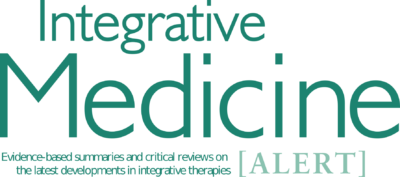
Integrative Medicine Alert – September 1, 2009
September 1, 2009
View Issues
-
How Does Your Garden Grow? Organic vs. Conventional Food
Authors of a recently published systematic review concluded that organic foods offer no significant nutritional benefit when compared with conventionally raised fare; however, the conclusions reached were based on extremely limited data, as stated by the authors, and focused solely on a small number of nutrients, with no attention paid to potential chemical/pesticide exposure to those ingesting the food, nor to environmental issues. -
Extra Calcium Does Not Prevent Weight Gain Among Overweight/Obese Patients
This randomized, double-blind, placebo-controlled trial measured the effect of 1,500 mg of calcium carbonate daily on total body weight and body fat mass in 340 overweight and obese individuals. After two years, both the placebo group and the calcium group showed equal gains in total body weight and body fat mass, leading the researchers to conclude that supplemental calcium is not effective in preventing weight gain in this population. -
Does Yoga Untie the Pretzel of Anxiety and Depression?
Yoga may be helpful for psychological disorders. -
Public Perceptions of and Behavioral Changes in Response to the H1N1 Flu Outbreak
A telephone survey revealed that the UK general public had a relatively low level of anxiety about H1N1 flu, and also made relatively few behavioral changes to reduce the risk of transmission. People's likelihood to make changes was associated with a number of perceptions regarding H1N1 flu (swine flu). -
When Statins Hurt: Red Yeast Rice and LDL-cholesterol
In a well-designed RCT, researchers showed that a combination of healthy lifestyle training and the supplement red yeast rice successfully lowers LDL- cholesterol levels in people intolerant of prescription statin drugs due to myalgias, and without significant side effects. -
A New Movement: Feldenkrais and Falls
Results of this small pilot trial suggest that a specialized movement program based on the principles of Feldenkrais therapy, when offered to elderly community-dwelling subjects twice weekly for 10 weeks, improves objective measures of balance and movement as well as self-confidence in both areas. -
News Brief: Use of CAM in the United States: Cost Data
In the 2007 national health interview survey (NHIS), approximately 38% of adults reported using complementary and alternative medicine (CAM) in the previous 12 months.
